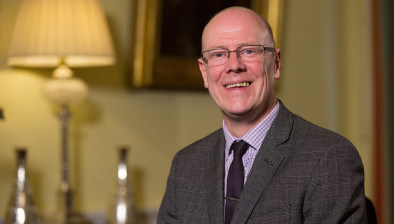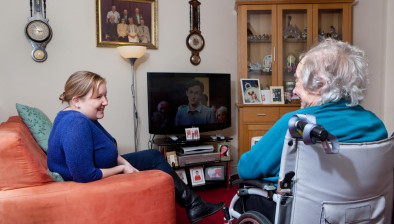Lack of social care the biggest cause of delayed discharge, warn nurses
 Two thirds of Scotland’s nurses (66 per cent) believe a lack of social care is the biggest cause of delays in discharging patients from hospitals, a new review has found.
Two thirds of Scotland’s nurses (66 per cent) believe a lack of social care is the biggest cause of delays in discharging patients from hospitals, a new review has found.
A study into the pressures currently faced by NHS nurses in Scotland from older people’s charity the Royal Voluntary Service has also revealed that over half (52 per cent) admit they are frequently forced to delay discharging older patients because there is no support in place for them after hospital.
The finding come as the Scottish Government prepares to introduce a new two-week discharge target in hospitals from April 2015, a policy which 70 per cent of nurses lack confidence in and do not believe will help reduce delays.
The care crisis has reached such a level that nurses in Scotland are finding that over a third (37 per cent) of older patients are in fact medically fit for discharge, but instead are languishing in much needed beds because there is no post-hospital support in place.
Over three quarters of the Scottish nurses surveyed (84 per cent) reported that delayed discharge is a serious problem in the hospitals they work in and 76 per cent said it has worsened in the last 12 months.
The study, assisted by The King’s Fund, forms part of a campaign “Let’s End Going Home Alone”, which sees the charity work in partnership with communities, local authorities and NHS Boards to provide more volunteers in hospitals and support vulnerable older people in their homes following discharge from hospital.
The Scottish Government is committed to reducing the number of people in Scotland waiting to move from hospital to a more appropriate care setting, and from April 2015 the current target of four weeks will be reduced to 14 days to address the issue.
Nurses in Scotland believe a good relationship between the NHS and social care is most important to a successful discharge policy (86 per cent). Overall, almost two thirds (64 per cent) believe partnering with charities and volunteers would help ease pressure on the NHS.
On 1st April 2015, NHS and social care partnerships across Scotland will submit plans on how they will integrate health and local authority social care services, to be implemented by 1st April 2016.
Margaret Paterson, director of Royal Voluntary Service in Scotland said: “There have never been so many delays in hospital discharge and this is primarily due to a lack of support in place for older people after hospital. The recent boost to the Integrated Care Fund is certainly a step in the right direction, many local authorities and hospital boards are still struggling with overstretched resources.
“Bringing in additional volunteers through Home from Hospital schemes is a cost effective solution to ensuring older patients experience a timely and well-managed discharge from the hospital ward. A volunteer can offer both practical and emotional support and help the older person to rebuild their confidence and go on to live an independent and fulfilling life.”
David Buck, senior fellow, public health and health inequalities, at The King’s Fund said: “Across the UK delayed discharges are a key indicator of the performance of not only hospitals, but how our overall health and care systems are working. In recent months, this has become a key concern for health and care systems across the country.”
“Volunteers can help ease some of this pressure by working with hospitals and social care to help improve transfer of elderly people to their homes. We know that those who receive these services value them highly and there are indications that this may also help reduce readmission rates too.”









